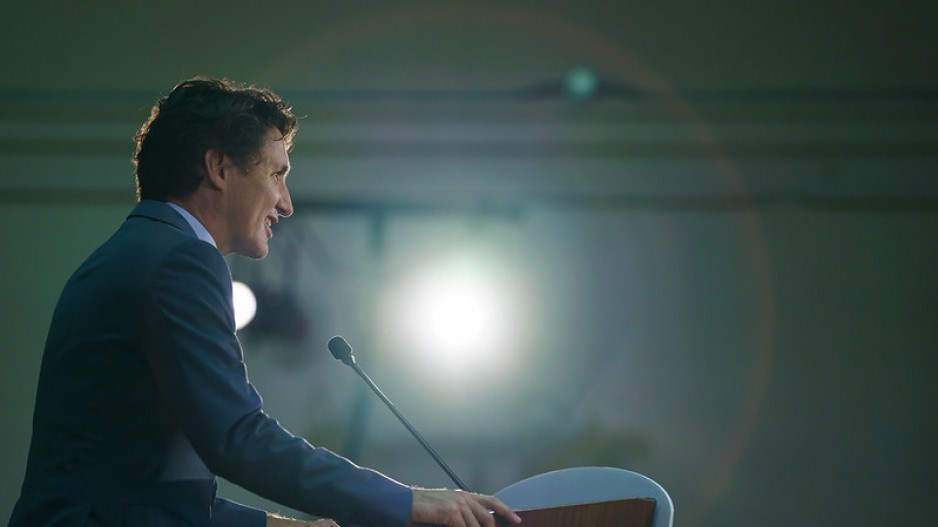In some countries, the initial public reaction to creeping inflation is to scrutinize the salary of politicians.
Some populist administrations around the world have countered this discomfort by slashing expenditures and reducing the salary of public servants. It is often seen as a gesture of goodwill that shows empathy with struggling families and workers.
Canada is different. We do not usually look at the emolument of elected officials as a reason to be upset. In a social media platform brimming with criticism towards the prime minister, there have been exactly two tweets featuring the phrase “Trudeau is overpaid” over the past two years.
Research Co. and Glacier Media wanted to find out if Canadians are aware of how much money the prime minister and leader of the Opposition make, and whether the salaries both men currently command are adequate. The results outline plenty of confusion and unsurprising regional disparities.
Just under one in five Canadians (18 per cent) correctly guessed that the prime minister’s annual salary is in the range from $301,000 to $400,000. About two in five (42 per cent) think Justin Trudeau earns less, while one in four (24 per cent) think his salary is higher.
Some assumptions about the prime minister’s earnings are unique. In Alberta, which has never particularly liked any Trudeau, 23 per cent of residents believe that the salary is higher than $500,000.
We then told survey respondents that Trudeau earns $379,000 a year. For almost half of Canadians (47 per cent), that is “about right”, while 41 per cent believe he gets paid “too much” and five per cent think he is paid “too little.”
Canadians aged 35 to 54 are more likely to believe that Trudeau gets paid “too much” (46 per cent) than their counterparts aged 55 and over (39 per cent) and aged 18 to 34 (37 per cent).
The popularity of Trudeau’s Liberal Party plays a role in the way respondents feel about his salary. Majorities of respondents in Saskatchewan and Manitoba (52 per cent) and Alberta (51 per cent) think he is paid “too much”. Fewer residents of Atlantic Canada (45 per cent), B.C. (41 per cent), Ontario (39 per cent) and Quebec (35 per cent) believe the head of the federal government is overpaid.
Only 24 per cent of Liberal Party voters in 2021 think Trudeau is paid “too much”. The proportion climbs to 42 per cent among those who supported the New Democratic Party (NDP) in the last election and to 57 per cent among those who cast ballots for Conservative Party candidates.
When it comes to the leader of the Opposition, Canadians are either more informed or significantly better in their guesses. Almost two in five (38 per cent) estimate his salary to be on the $201,000 to $300,000 range.
This year, Pierre Poilievre will earn $279,900. A third of Canadians (34 per cent) assumed his annual salary was lower than $200,000, while just 13 per cent thought it would be higher than $301,000.
Canadians are evenly divided on how much money he makes, with 45 per cent deeming his annual remuneration as “too much” and 44 per cent saying it is “about right”. Only four per cent think Poilievre makes too little.
In stark contrast with Trudeau, reaction to Poilievre’s annual salary does not accurately match the areas where the party he represents is popular. Majorities of residents of Saskatchewan and Manitoba (52 per cent) and Atlantic Canada (also 52 per cent) think his salary is “too high.” The numbers are lower in B.C. (46 per cent), Ontario (44 per cent), Quebec (41 per cent) and Alberta (also 41 per cent).
Party allegiance does not move the needle much for Poilievre. Half of Canadians who voted for the NDP in 2021 (50 per cent) think his annual salary is “too high.” Fewer Conservative voters (45 per cent) and Liberal voters (39 per cent) share the same view.
In essence, Canadians are not particularly informed about the salaries of the prime minister and the person running to supplant him. At a time when the lowest-paid player in a Canada-based NHL franchise earns around $1,000,000 a year, being mad at politicians whose salaries are well below seven figures is not a national sport.
Mario Canseco is president of Research Co.
Results are based on an online study conducted from Feb. 9-11 among 1,000 adults in Canada. The data has been statistically weighted according to Canadian census figures for age, gender and region. The margin of error is plus or minus 3.1 percentage points, 19 times out of 20.



